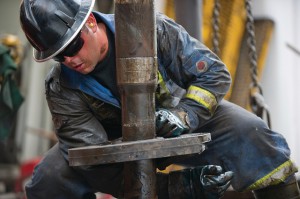
Downhole fluids, no doubt play an important role in a well’s success and in its failure. Finding new ways to improve drilling fluid performance is now more important than ever as the industry presses to expand into difficult drilling territories. Here are a few tips for improving drilling fluid performance.
Minimizing Pressure
Work to minimize the additional pressure exerted on the well when working with HPHT wells which provide a narrow window between pore pressure and fracture gradient. The best way to accomplish this as far as drilling fluids is concerned is to use thin, low-rheology fluid. This will create the lowest possible pressure for the well bore. Remember, however, that HPHT fluids such as HP fluids are high density. These fluids must be able to support the solids which are added in. This tends to drive you away from the use of thin fluids. A balance must be reached between thin, low pressure fluid without also creating the problem of poor slide support.
Understand Thermal Stability
Because the thermal stability of fluid products can make drilling complicated, staff must understand how temperature and pressure profiles of the well being used will affect the suggested fluid. Your entire team should be aware that HPHT wells require more time and effort to keep drilling fluids in the best condition. Fluids can not be changed rapidly.
Don’t Underestimate Fluid Investment

The cost of drilling fluids is typically 5-10% of the total well cost. You should keep in mind, though, that the mud’s influence on final well cost will be more than this. This is why misapplied or incorrectly run fluids will cause a huge overrun to your planned AFE. When using a HPHT well your margin for error will be very small. In these types of demanding environments the technical performance of the fluids can not be underestimated.
Ensure Stability At Extreme Conditions
For maximum performance you will need to make sure that the fluid and all fluid additives will be able to remain stable for the maximum expected time in the most extreme conditions possible. Be aware that if the fluids begin to break down thermally, there will be different elements acting within the system. There is no way to be certain what the outcome of these new chemical reactions will be.
Trust Field Experience
Field experience is one of the best ways to help determine what fluid systems and products would perform best under the existing conditions. You should remember, though, that every day this industry is pushing technical boundaries. HPHT projects may not have many similar drilled wells to help with fluid selection and design. When this is the case, laboratory work needs to be completed with detailed drilling and mud programs becoming more critical. Use field experience to develop back up plans. Because every hole is different fluid design will need to be specific to that particular well. This is why the operator and the fluid company need the ability to think outside of the box in order to solve major calamitous situations.